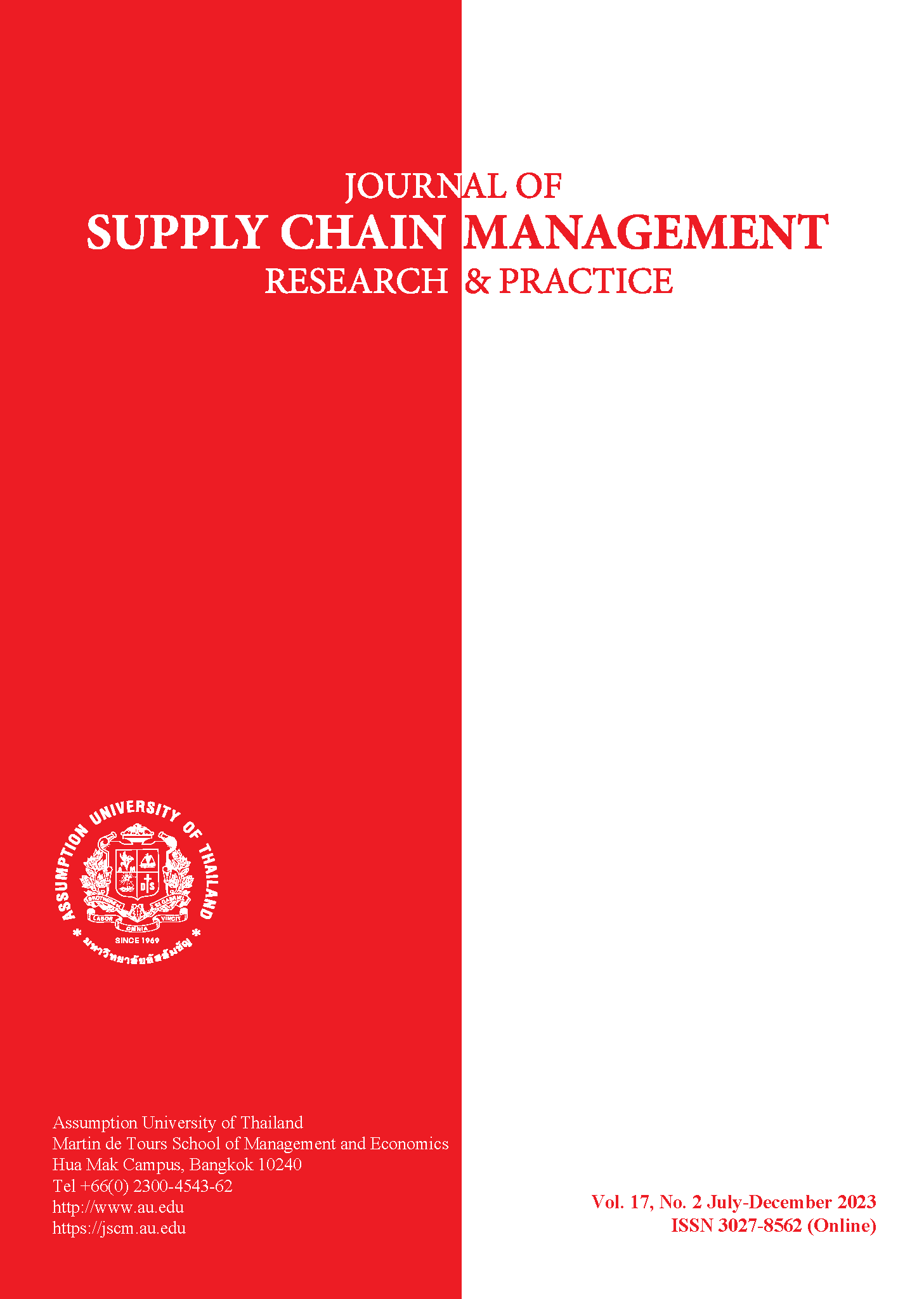LOCAL OPERATIONS OF GLOBAL SPORTSWEAR FIRMS IN THAILAND
Abstract
This paper examines how global companies in the sportswear industry in Thailand glocalize their internal operations (which are part of the supply chain), to achieve a balance between global integration and national differentiation. Interviews were held with managers in four leading companies. The interview questions were directed at four business functions: coordination and control, research and development, marketing and sales, and production units.
It was found that the four companies have similar practices. The result show that in coordination and control, regional headquarters act as an intermediary between head-quarters and subsidiaries and licensees.
The research and development function strategy has a global approach: there is no adaptation to fit each country. In marketing and sales units, regional strategy is implemented. Different companies have different practices; some have more autonomy in decision making. In production units, global strategy is also adopted. Sourcing decision making is centralized. The production strategy is product specialization. Each company exports, worldwide or to a major area. Nevertheless, the strategic trend is different in the studied companies. There are moving towards more centralization, but one company is moving to decentralization by giving more autonomy to subsidiaries. The marketing and sales function and production function are managed separately and registered as different companies, i.e. they are functional organizations. These companies obviously ‘act global but think local’. However, regional teams must have diverse international experiences to understand how this can be done appropriately.


